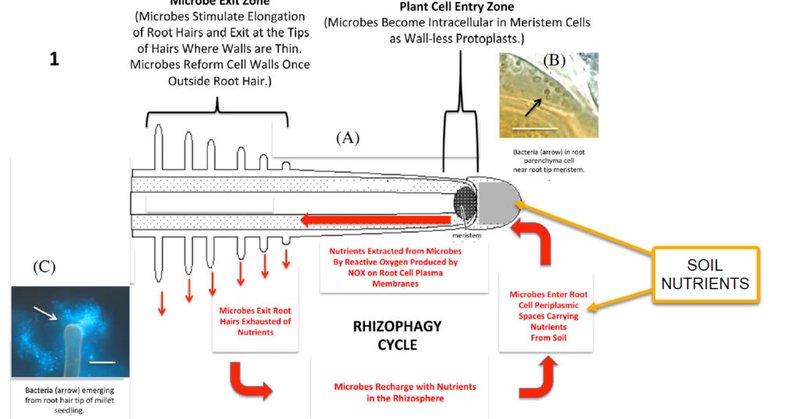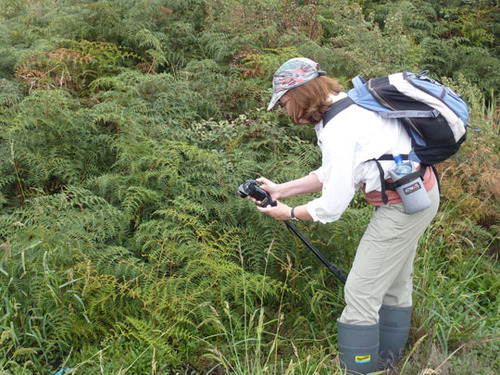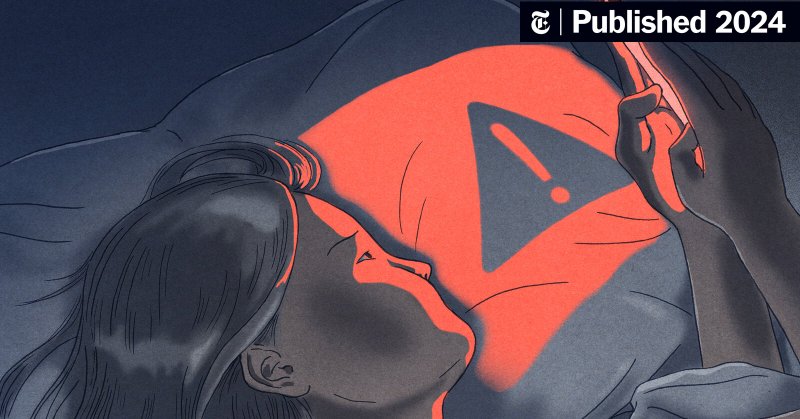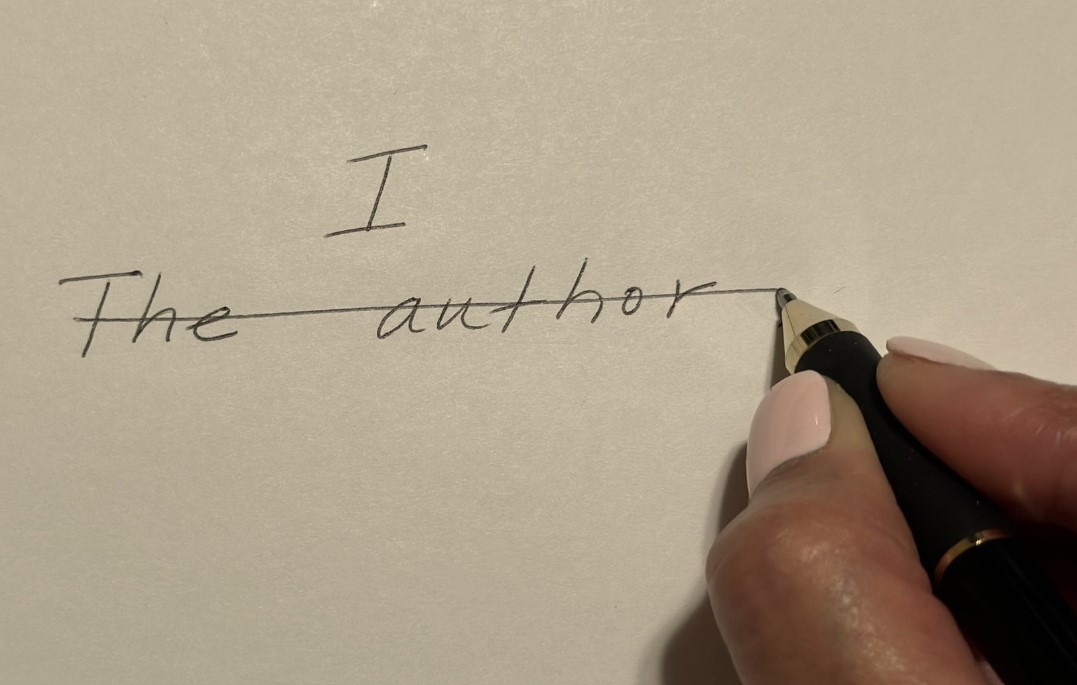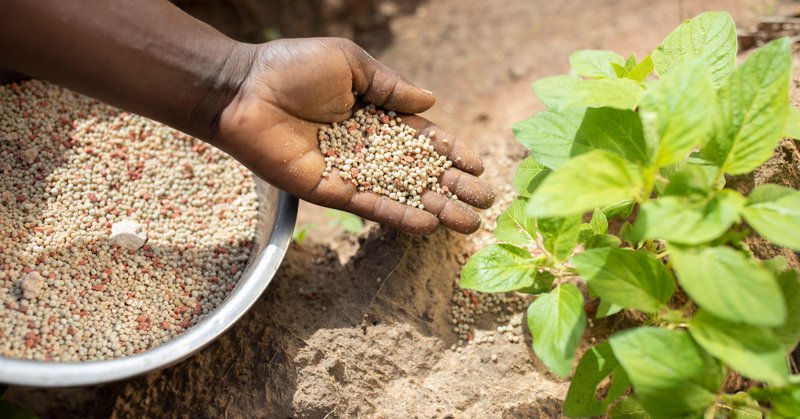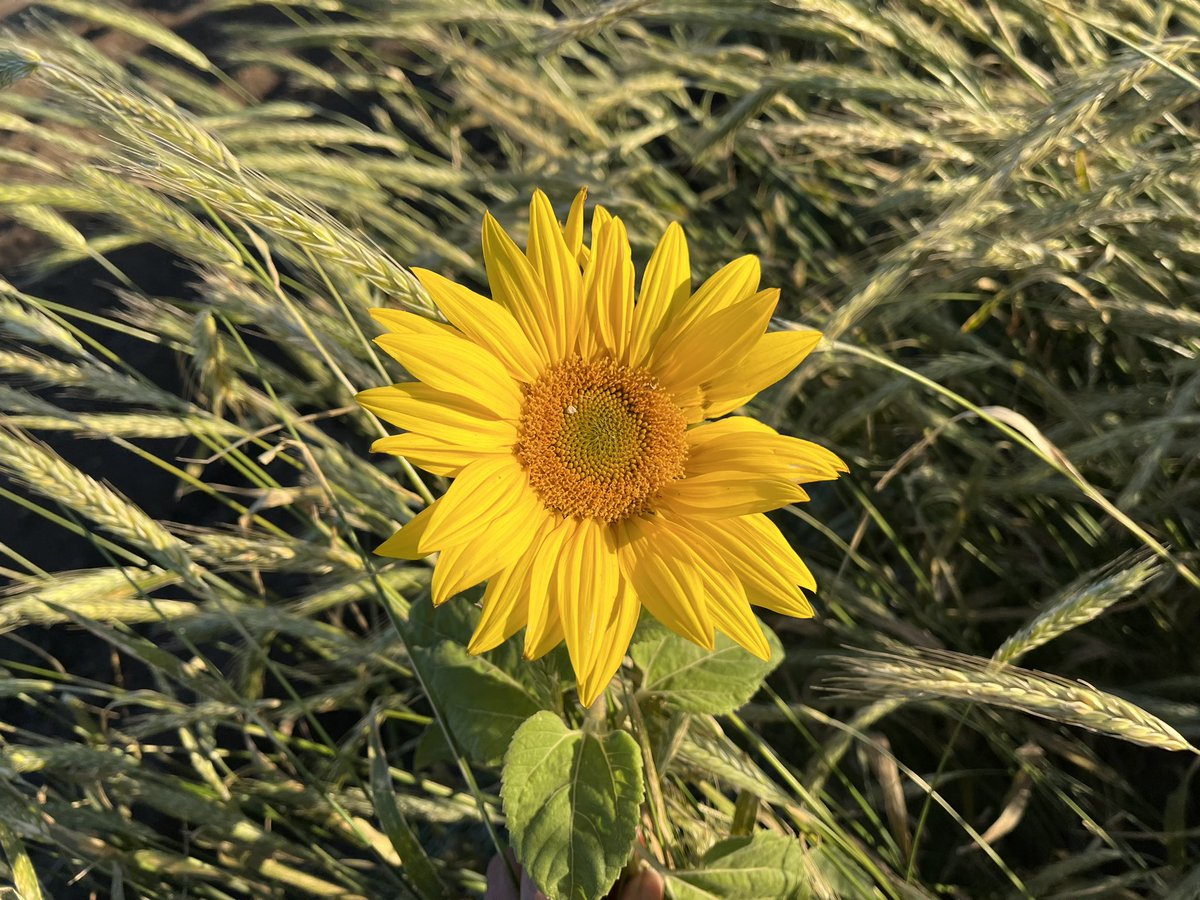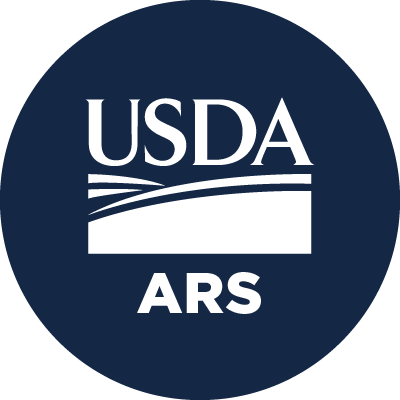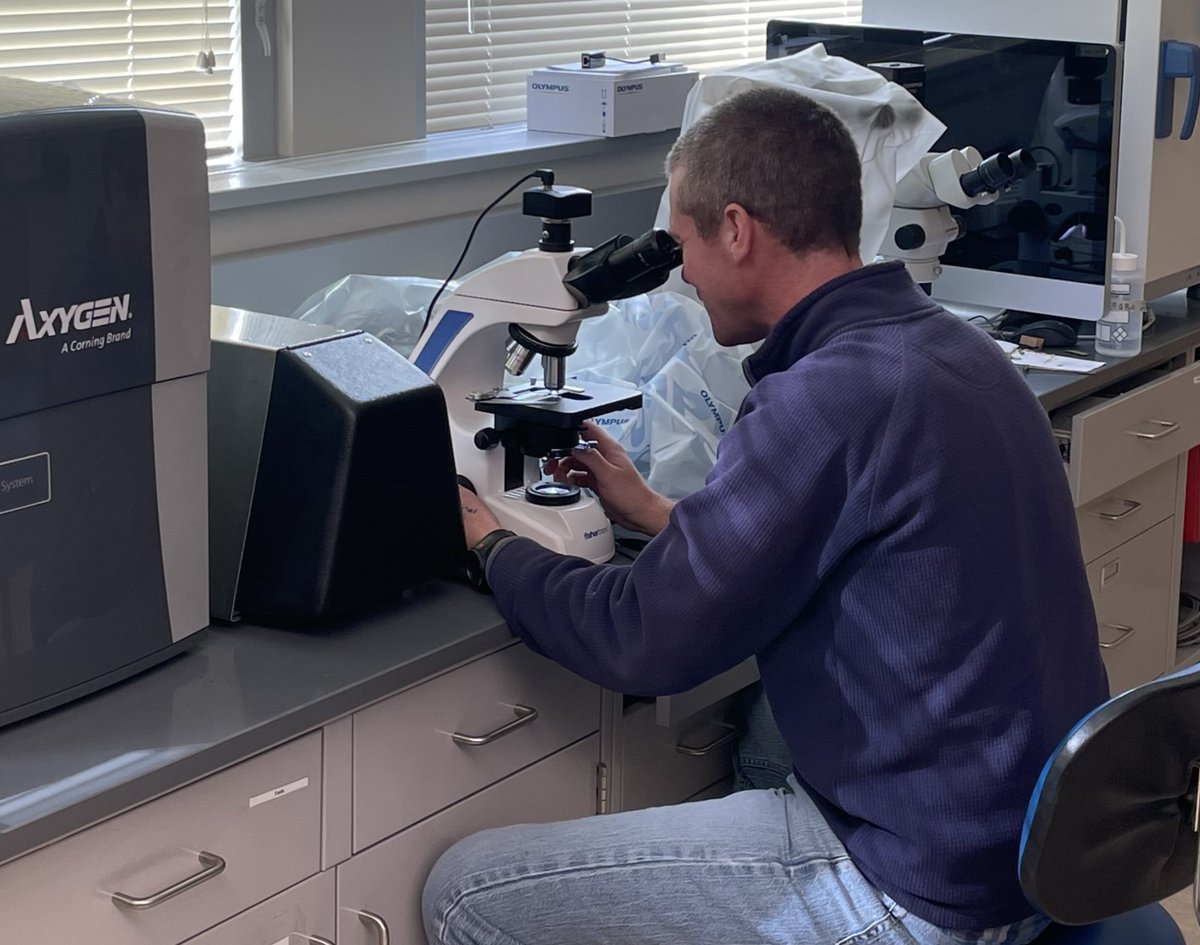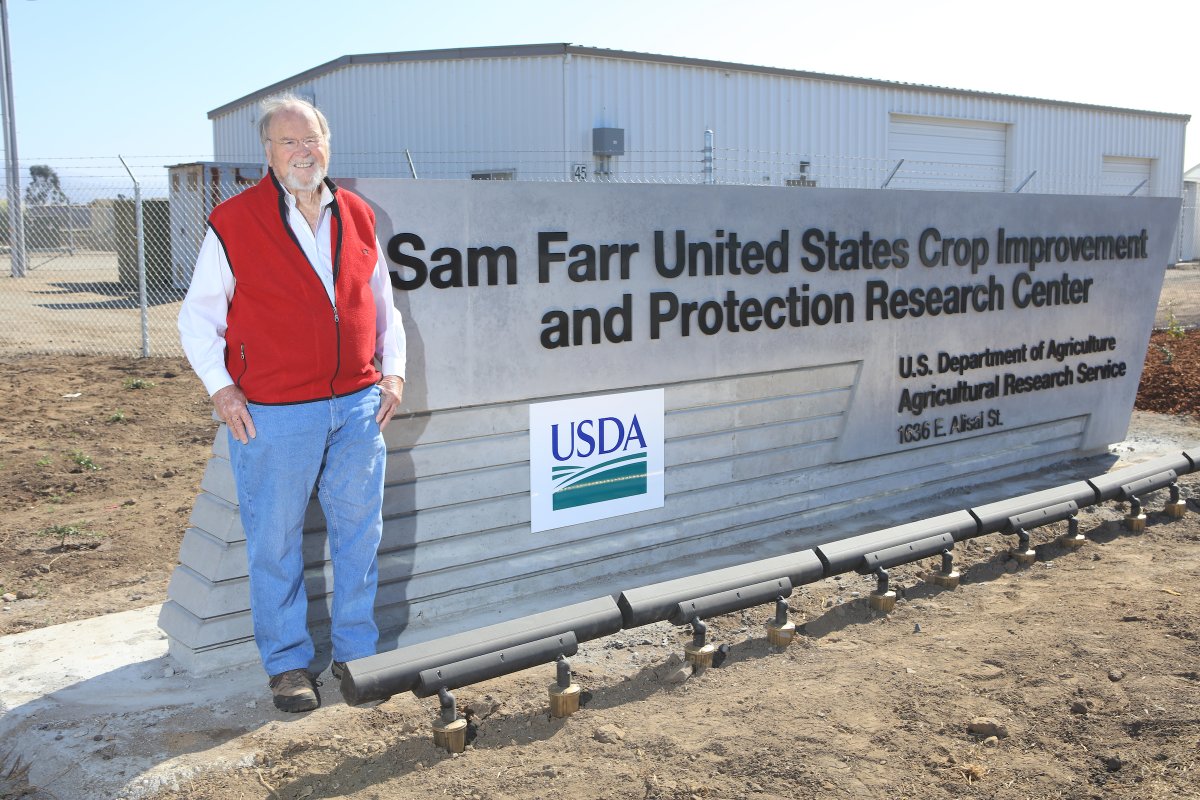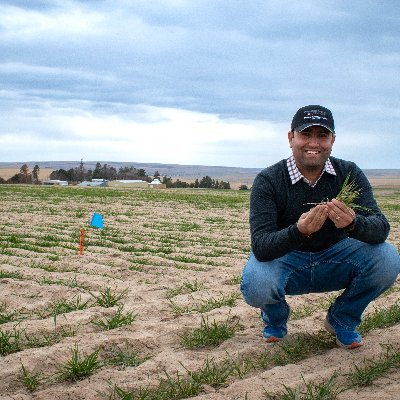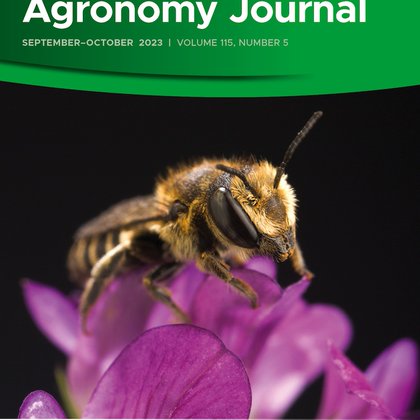
Dr Eric Brennan❤️thinking...outside..the produce📦
@EBrennanScience
Followers
606
Following
1K
Media
231
Statuses
753
Scientist @USDA_ARS DIY YouTuber. I study ClimateSmart Ag▪Cover crops▪Soil▪Insects▪Weeds▪Sustainable🥦🍓 I❤#SciComm #RPCV🇹🇭🇿🇲 Roots in 🇵🇬. MyViews
Salinas, California, U.S.A.
Joined April 2020
Ever had a science paper rejected because you wrote it in the first-person voice (I, my, we, our)? I have & I'm not the 1st. This video tells my story & provides a path to end this nonsense. https://t.co/4g79h2oBhE
@ASA_CSSA_SSSA @ACSGradStudents @YTacademics #scicomm
0
4
4
Rhizophagy and quorum sensing are fascinating soil processes, but do they matter for crop management? My latest post examines the evidence, looking for field relevance to determine whether these are hype or helpful...
csanr.wsu.edu
If you’ve heard of rhizophagy or quorum sensing, it’s probably because of regenerative agriculture. The movement has popularized these soil processes through videos, articles, social media influenc...
12
9
43
Here's why I love being a public servant agricultural scientist. How about you? We do research to help farmers solve tough problems that affect Americans every day from field to table. Proud to be part of this hard-working team @USDA_ARS
https://t.co/PQB4JWmEzW
0
1
3
My new video on fall-terminated versus over winter rye cover crops. Interesting results on biomass production & seed set. Learning lots that can increase cover cropping in vegetable production & improve soil & nutrient management. @Stanford @USDA_ARS
https://t.co/RhW3OrgKH9
0
3
10
Soil bio-products - inoculants, biostimulants, biofertilizers - are risky; risky because these products often fail, are inconsistent, or have benefits<cost. When you use a bio-product, you are looking for the exception. More here: https://t.co/CvRrag56op
Meta-analysis of commercial mycorrhizal inoculant research results: Failure is the norm. Open access. https://t.co/OQCWFTrffz
5
20
76
Check out this new video on a study I'm doing with @Stanford collaborators comparing fall-terminated versus winter cover crops to reduce N leaching & protect groundwater in vegetable systems in the Salad Bowl of America (Salinas, California) . @USDA_ARS
https://t.co/DyzsnwW6rb
0
2
3
Excellent talk that concluded with this important message: 'There is no room for dogma in science'. Agricultural scientists need to keep this in mind...especially those of us who work in organic agriculture.
0
0
5
Check out my new video on the importance of Agricultural Systems Research in the Salad Bowl of America. This includes cover cropping, weed management, biological insect control, nutrient cycling, etc. It was fun to make. https://t.co/LoH6gksbzZ
0
0
3
Thanks for this excellent video on an important topic, first-person pronouns in science writing. It's 1 of more than 50 helpful videos by @scivideographer to improve your science writing available here. Great resource for new & experienced science writers.
youtube.com
In this video, I talk about when and how to use first-person pronouns in scientific papers. https://t.co/XyA5BifYkL
0
0
0
Most scientific published studies have “positive results.” But what about the papers with negative results? Dr. Sarahanne Field, editor of @jtrialerror, joins us to discuss how failure can make science stronger. https://t.co/7arKU880z4
sciencefriday.com
In an effort to learn from scientific failure, The Journal of Trial Error only publishes “negative” results.
3
5
13
Social media has become an important contributor to our #YouthMentalHealth crisis. We are in the middle of an emergency, and it’s essential that Congress act with speed and urgency. The health and well-being of our kids is at stake. Read more: https://t.co/AR0VOfcjoF 2/2
nytimes.com
It’s time for decisive action to protect our young people.
19
100
176
#PNAS “I” versus “the author”: The power of first-person voice when writing about science https://t.co/S4C9JIzhAu "I remember the moment when I began losing faith in the editorial fairness of peer-reviewed science literature. It happened as I struggled to publish a paper."
1
2
5
Opinion piece: Can writing #ResearchPapers in the first person make them not only easier to read and understand, but also more impactful? In PNAS Front Matter: https://t.co/l02yhZL4L7
#SciComm #ScienceCommunication #WritingStyle
3
32
85
This PNAS opinion piece may be of interest to those writing up a thesis or a manuscript for publication. The use of “I” versus “the author” is debated and gives food for thought. #WordsMatter @ReproductionSRB
https://t.co/JoU8vs1CnN
pnas.org
“I” versus “the author”: The power of first-person voice when writing about science
0
3
4
I 💯 agree with @EBrennanScience re 'The power of first-person voice when writing about science'
pnas.org
“I” versus “the author”: The power of first-person voice when writing about science
0
4
4
Absolutely this! The easier it is to read a scientific paper, the better it will be for its understanding. I've even been told not to write "we did..." as it's "not scientific." I ignore that advice. "Scientific style" must stop meaning unnecessarily complicated and stilted.
Excited to share my paper “I” versus “the author”: The power of first-person voice when writing about science. Let's embrace first-person pronouns & move beyond outdated notions that those powerful, short, gender-neutral, easy-to-read words are inappropriate in science writing
0
1
3
Excited to share my paper “I” versus “the author”: The power of first-person voice when writing about science. Let's embrace first-person pronouns & move beyond outdated notions that those powerful, short, gender-neutral, easy-to-read words are inappropriate in science writing
Opinion piece: Bucking convention by writing #ResearchPapers in the first person can make them easier to read and understand, as well as more concise, impactful, and accessible. In PNAS Front Matter: https://t.co/nOmbC9qrji
#SciComm #WritingStyle
2
8
26
Lack of mineral fertilizer worsens crop nutrient depletion
nature.com
Nature Africa - Nitrogen requirements cannot be adequately met solely through biological nitrogen fixation by legumes and recycling of animal manure.
3
9
20
Good morning sunflower in rye. It’s time to get to work. Got to beat the rain.
0
0
6
Enjoyed attending the official opening of our new research center. It's great that it was named after fellow #RPCV Rep. Sam Farr who started his decades of public service as a @PeaceCorps volunteer. I appreciate his efforts to support sustainable agricultural research here.
ARS celebrated newly constructed Sam Farr United States Crop Improvement and Protection Research Center in Salinas, CA. The center features state-of-the-art labs & greenhouses & the capacity for additional scientists to work on fruit and vegetable research https://t.co/xd60UCkX8s
0
0
2
Insightful explanation of common errors in biomass collection and useful tips to avoid those by @EBrennanScience Link to video: https://t.co/Uo4t9Vlvly Link to paper (Open Access): https://t.co/s64vNFHh2V Thanks, Eric!
acsess.onlinelibrary.wiley.com
Misuse of quadrats to sample drilled cover crops can inadvertently lead to inaccurate biomass estimates. A survey of recent literature suggests that quadrat misuse may have occurred in many drilled...
Cover crop researchers often use quadrats to sample biomass, BUT this can lead to inaccurate data. My video explains this & was shown @ASA_CSSA_SSSA meeting last week. Please share it with cover crop researchers to help avoid common mistakes
1
4
11


